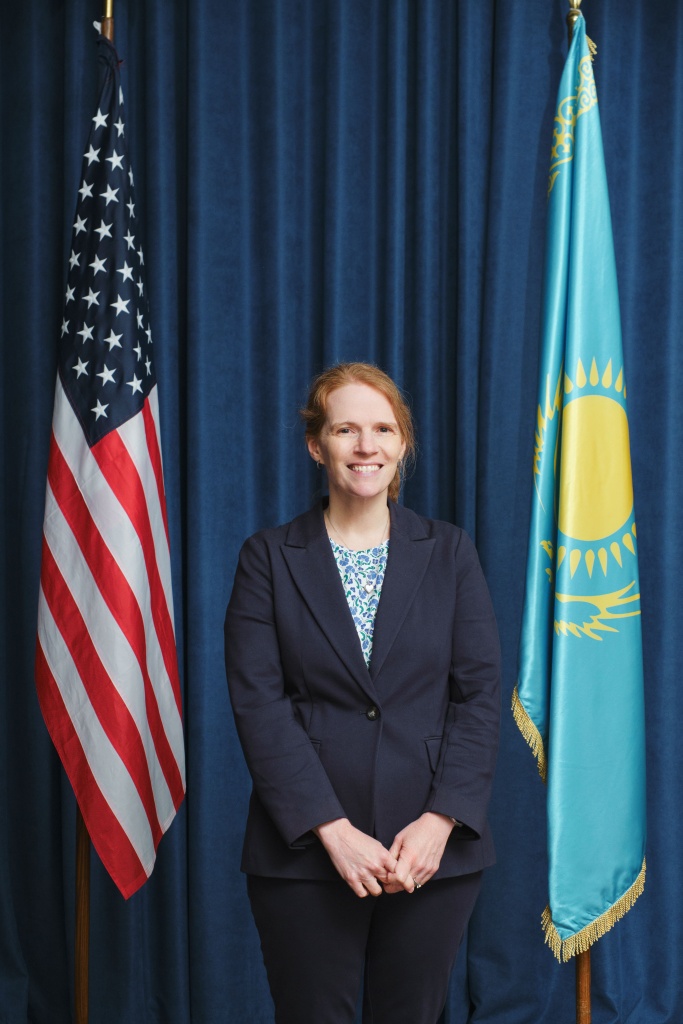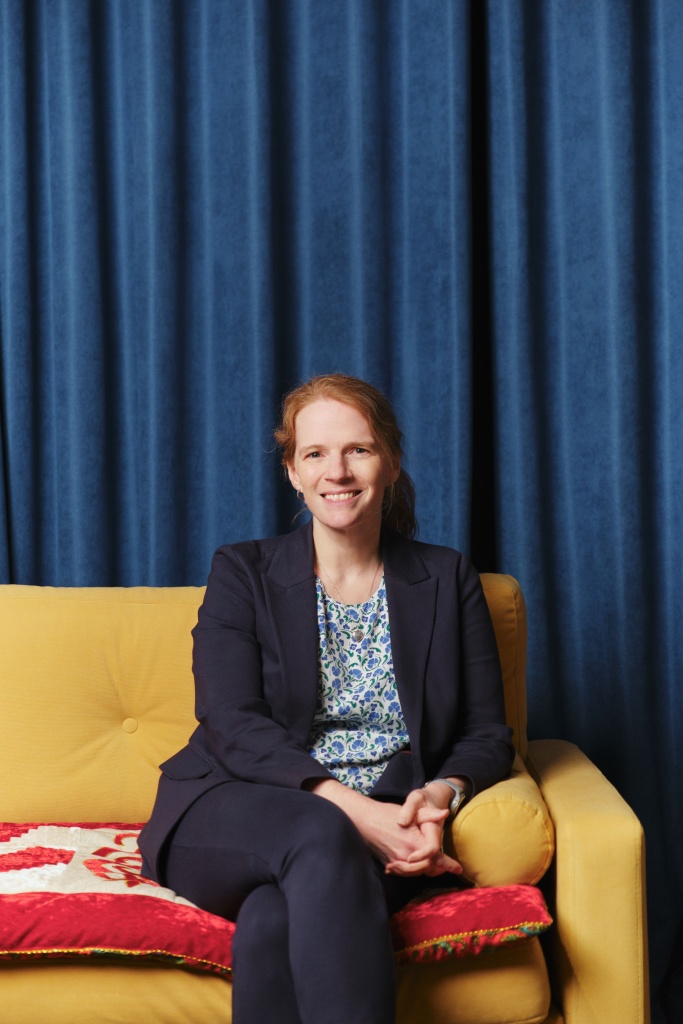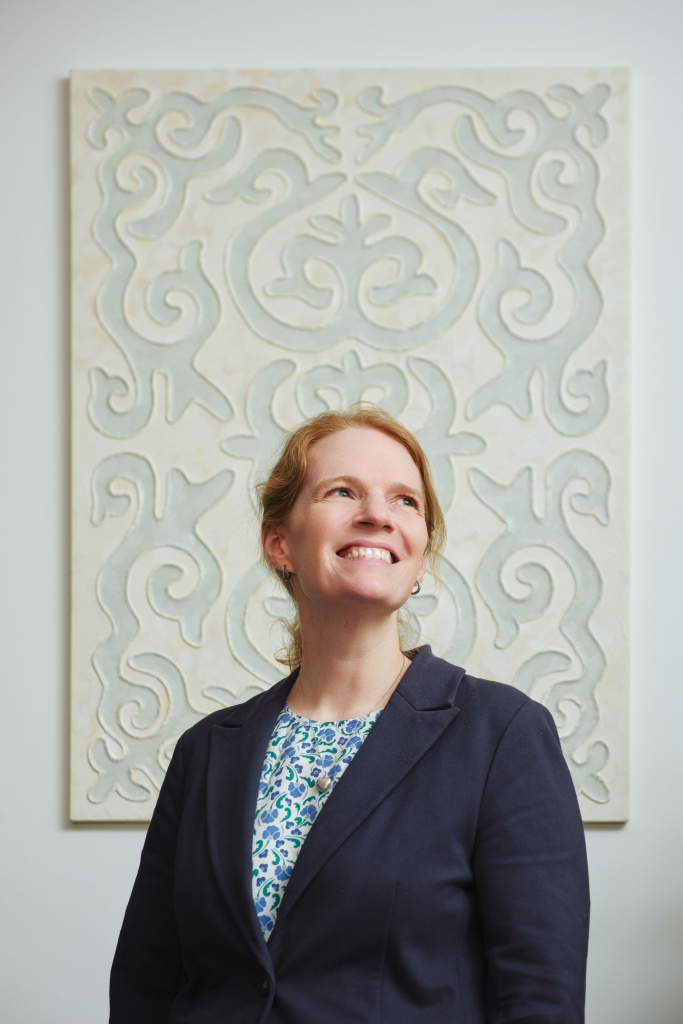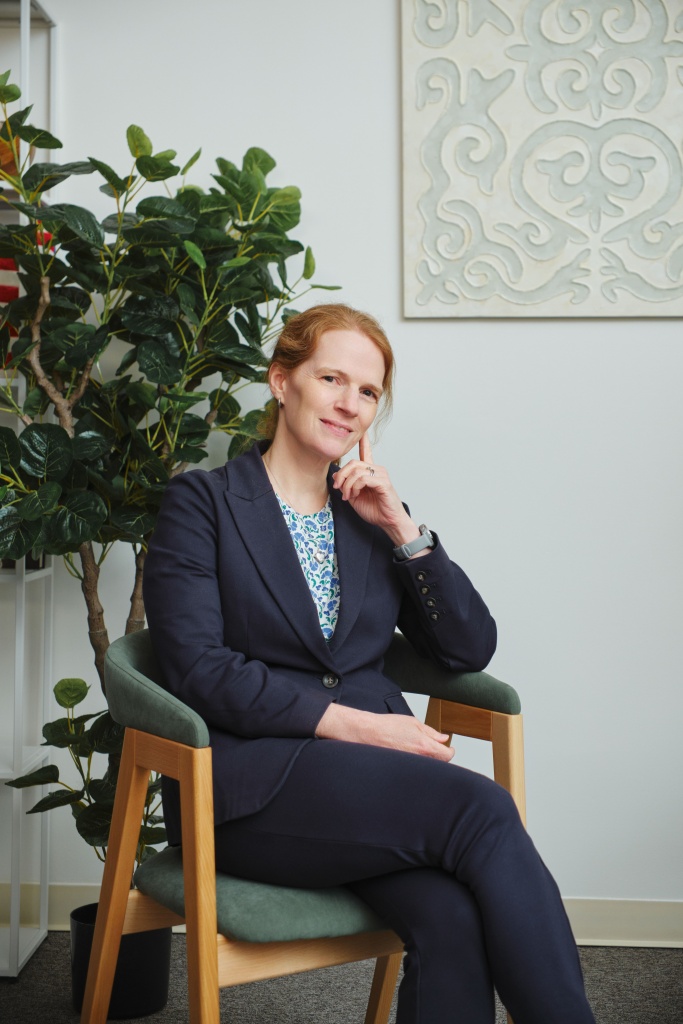We spoke with a representative of the U.S. Embassy in Kazakhstan about the educational and cultural programs conducted in the country and asked for advice for those who want to participate.
Sarah Smith, Cultural and Educational Programs Specialist at the U.S. Embassy in Kazakhstan

About myself
I’ve been living and working in Kazakhstan since 2020. My main focus is educational and exchange programs for youth: schoolchildren, university students, and those learning English.
I also work closely with colleagues who oversee programs for scholars and professionals. Another important part of my work is the American Corners program, which operates in 10 cities across Kazakhstan.
About educational programs
One of the most well-known programs is FLEX. It’s designed for high school students. Participants go to the U.S., attend an American school, and live with a host family. It’s one of my favorite programs.
We also run the Access program — additional English language courses for schoolchildren, for example, after school.
For university students, there’s Global UGRAD — a semester-long study program without a degree. It’s suitable for first- and second-year students.
Teachers can apply for Fulbright — a whole suite of programs, including:
Fulbright Foreign Student Program — a fully funded Master’s degree in the U.S.
Fulbright Foreign Language Teaching Assistant — for university graduates with teaching experience. They can go to the U.S. for a year to teach Kazakh at a university. The application for the 2026–2027 academic year is now open until July 15.
Fulbright TEA — a six-week program for secondary school teachers.
Open English Online — an online program for English teachers in Kazakhstan.
We also have programs through which American specialists come to Kazakhstan — for example, Fulbright English Teaching Assistants and English Language Fellows. We’re happy to collaborate with them every year.
For professionals, there is the IVLP program, and applications for the Hubert Humphrey Fellowship Program will open soon. This is a ten-month program that combines academic studies and professional internships. It’s designed for young professionals with higher education and at least five years of work experience. It’s not a degree program, but it provides a powerful career boost.
Some of these programs are not as widely known as Fulbright, but they are also part of the U.S. Department of State’s portfolio of supported programs.

All programs are competitive, and we can only send a limited number of participants. But I always say: if you’re not selected the first time, try again. If you meet the eligibility requirements — apply next year. I personally serve on selection committees and meet incredible people. Often, someone gets in on their third or even fourth attempt.
I’d also like to mention EducationUSA — a free advising service. We have offices in Astana, Almaty, and Shymkent. Advisors help schoolchildren and students who want to study in the U.S.: how to choose a university, prepare documents, take TOEFL and other exams. This is especially valuable because similar services from private agencies can be expensive, but here everything is free.
Eligibility requirements depend on the specific program. For example, FLEX has age limits, and Global UGRAD requires applicants to be university students. In general, we look for Kazakhstani citizens who haven’t had much experience traveling to the U.S. yet. If someone has been to the U.S. briefly as a tourist — that’s fine. But if they’ve already taken part in one of our programs, they are not eligible to participate again.
About cultural programs
Culture is an essential part of our work. We strive to share it and find common ground. One vivid example is a music program we’re organizing this summer: in June, a bluegrass band from the U.S. will visit Kazakhstan. This is a unique genre of American music. The musicians will not only perform concerts but also hold workshops for students and collaborate with a Kazakhstani band — there will be joint creativity, exchange of experience, and a search for common language through music.
In September of last year, we helped bring a kokpar team from the U.S. to the World Nomad Games. The athletes not only competed but also held public events, workshops, and interacted with people. It was another way to show how American Western culture and traditional Kazakh culture can intersect.

We also run sports programs. We invite American athletes to conduct training sessions and masterclasses for young Kazakhstani athletes. Sometimes we organize exchanges — when Kazakhstani athletes visit the U.S. to see how amateur sports programs are developed there. Sports are a universal language that helps build real human connections.
Our American Corners operate in Astana, Almaty, Aktobe, Uralsk, Ust-Kamenogorsk, Karaganda, Kostanay, Pavlodar, Petropavlovsk, and Shymkent. These spaces are open to everyone. Most of them are located in libraries. You can come there to practice English, learn more about studying in the U.S., and meet like-minded people. Seven out of the ten corners have makerspaces created in partnership with Chevron — you can explore robotics, coding, VR, astronomy, and other STEM areas.
We also screen American films, talk about holidays, and discuss cultural topics. It’s not just a place to learn about American culture — it’s a space where you can talk about similarities and differences between our cultures and make new friends.
About the U.S. Embassy’s work in Kazakhstan
Our programs help people from different countries develop skills needed in today’s economy. Participants learn from American experts, exchange experiences, and discover new approaches. And this is important not only for their personal growth — it creates a solid foundation for future cooperation between countries: in business, science, and education.
The more shared experiences we have, the easier it is to work together, build trust, and move forward. Here in Kazakhstan, we already have a whole network of exchange program alumni — around 22,000 people. These are people we’ve already traveled part of the journey with — and with whom we can do even more in the future.
After they return, we stay in touch with our alumni. There are special programs for alumni: opportunities to network, apply for small grants, and implement their ideas. We hope this helps them continue to grow and stay connected with us. We’re always happy to see alumni thrive, share their experiences, and return to the community with new initiatives.
What participation in U.S. Embassy programs offers
I myself was an exchange program participant — first in high school, then at university. It’s a meaningful experience that shaped much of my worldview. You meet new people, and you see how life works in another country.

I would gladly send everyone I interview on these programs. Unfortunately, that’s not possible. That’s why we try to give people similar experiences right here in Kazakhstan — through initiatives like American Corners, Access, or educational courses for English teachers. These programs also help build cultural bridges, learn languages, and make international connections — even if you haven’t studied abroad yet.
Tips for applicants
Be yourself. I read a lot of applications, and believe me, it’s obvious when someone is being sincere. You don’t have to be perfect. What matters most is that you genuinely share your story. Talk about your experiences, your challenges, your insights.
People often name "inspirational figures" like Steve Jobs or well-known politicians in their responses. That’s perfectly fine, but as a reader, I’m more interested in hearing about someone like your grandmother, your coach, or a teacher who truly influenced your life.
If you’re just starting to think about applying to a U.S. university — don’t limit yourself to the top 20 schools that everyone talks about. There are over 4000 institutions in the U.S. There are more affordable and often more suitable options. For instance, the “2+2” program, where you start at a community college. It can be not only cheaper but also more comfortable.
When applying to programs like Fulbright or Humphrey, it’s important to have a clear understanding of what you want to achieve. Think about how participation will impact your career. The clearer and more realistic your goals are — the better. That doesn’t mean you need to set incredibly ambitious targets. It’s much more valuable to see in an application that someone knows exactly how they’ll apply the knowledge once they return to Kazakhstan. That they have a professional circle where they can share their experience — whether it’s fellow teachers, researchers, or specialists in another field.
The best applications always show that the person has a clear vision for how to use their knowledge after returning.